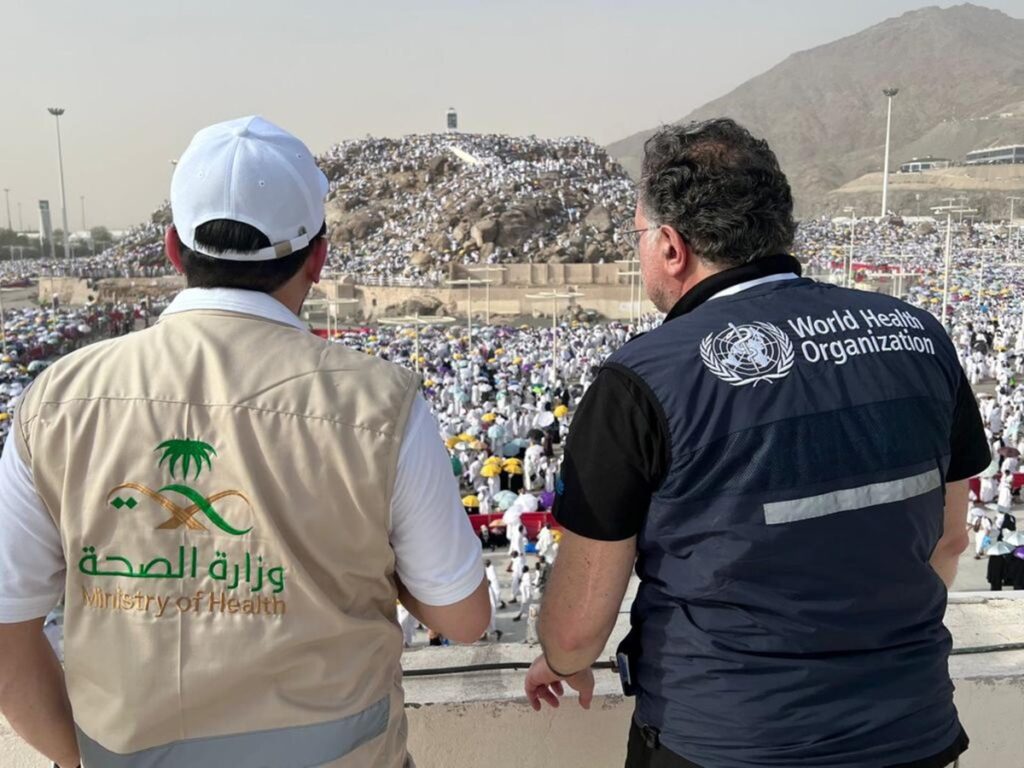The World Health Organization (WHO) and the Kingdom of Saudi Arabia today announced a digital health collaboration, a new milestone to scale up the Hajj Health Card initiative, which supports the approximately three million pilgrims who make the pilgrimage to the Holy Land each year.
The Hajj Health Card is built on the public key infrastructure of the WHO Global Digital Health Credential Network and summarizes important health information such as medication needs, allergies, immunization status, and pre-existing conditions. The card allows individuals to take control of their health information when traveling to Saudi Arabia, allowing certified healthcare providers to access accurate, up-to-date patient summary information and provide personalized, quality care. You will be able to receive it.
“Today marks WHO’s support to Member States to expand access to safer, person-centered digital health tools that can improve people’s access to quality health care when and where they need it. “We have made significant progress,” said Dr Jeremy Farrar, WHO Chief Scientist. . “We are grateful for the excellent cooperation with the Kingdom of Saudi Arabia, participating countries and the WHO Regional Office for the Eastern Mediterranean, and look forward to further supporting countries in building their capacity and infrastructure as they transition to more digital health systems. I’m looking forward to it.”
The Hajj is the world’s largest pilgrimage, attracting nearly 3 million pilgrims from more than 180 countries each year. More than 250,000 pilgrims from three countries – Indonesia, Malaysia and Oman – will be issued Hajj health cards in 2024 as part of a pilot collaboration between WHO and Saudi Arabia. This testing phase demonstrated that countries can issue their own versions of the card using global standards, improving the safety and quality of care for pilgrims during the Hajj.
WHO and Saudi Arabia have agreed to further collaborate to improve and expand the success of the Hajj health card pilot program. The expertise and support from the Saudi government and its digital implementation partner LEAN will enable improved data security and critical technical support to additional countries participating in the Hajj Health Card program.
“This exciting partnership between the Kingdom of Saudi Arabia and the World Health Organization to scale up the Hajj Health Card initiative will improve the safety and well-being of millions of pilgrims,” said WHO Regional Director for the Eastern Mediterranean (EMRO). Dr. Hanan Balki said. . “By leveraging digital health solutions, we will enhance the quality of care and contribute to strengthening health systems in the Eastern Mediterranean region and around the world.”
80 countries join WHO digital health certification network
WHO launches Global Digital Health Credentials Network (GDHCN) in 2023, building on successful collaboration with the European Union and other partner countries, to support COVID-19 vaccination certificates . GDHCN currently includes more than 80 WHO Member States and is leveraging the new global ISO standard IPS (International Patient Summary) to establish a system for mutually verifying the reliability of health information. .
GDHCN is based on a robust public key infrastructure (PKI) cryptographic system that keeps medical credentials verifiable and secure, allowing national authorities and healthcare providers to transfer medical care across borders without compromising individual privacy. You will be able to trust the authenticity of the document.
The initiative aims to usher in a digital health future where people can carry internationally recognized medical qualifications to improve travel and access to healthcare. This will give people greater access and control over their health information, allowing them to choose and decide what health information to share when receiving treatment at home or abroad.
By joining WHO’s certification network, countries can reduce administrative processes, make border controls more efficient and get more information during health visits. This global network will lay the foundation for long-term improvements in international healthcare coordination and enable future use cases such as cross-border e-prescribing, insurance, and even telemedicine.



